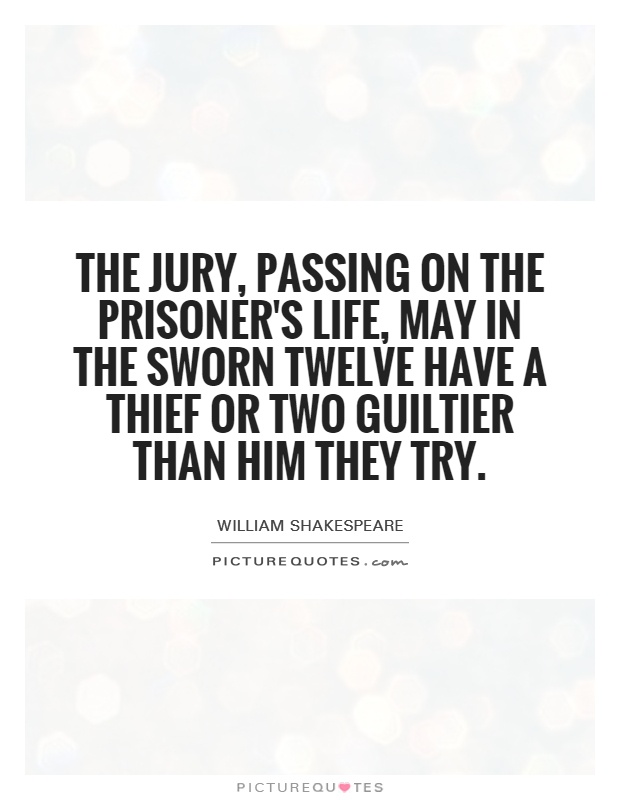The jury, passing on the prisoner's life, may in the sworn twelve have a thief or two guiltier than him they try

The jury, passing on the prisoner's life, may in the sworn twelve have a thief or two guiltier than him they try
In William Shakespeare's play "The Merchant of Venice," the character Portia delivers a powerful speech on the nature of justice and mercy. In this speech, she speaks of the flaws of the legal system, particularly the jury system, and how it can lead to unjust outcomes.The line "The jury, passing on the prisoner's life, may in the sworn twelve have a thief or two guiltier than him they try" speaks to the idea that the jury, made up of twelve individuals, may not always be able to accurately judge the guilt or innocence of a defendant. In this case, Portia suggests that there may be members of the jury who are themselves guilty of crimes worse than the one being tried.
This line highlights the inherent flaws in the jury system and the potential for bias and injustice. It suggests that the jury may not always be impartial or fair in their judgment, and that their own personal biases and prejudices may influence their decision-making process.
Shakespeare uses this line to explore the themes of justice, mercy, and the limitations of the legal system. He raises important questions about the nature of justice and the role of the jury in determining the fate of a defendant. By highlighting the potential for injustice within the legal system, Shakespeare challenges his audience to consider the complexities of human nature and the difficulties of achieving true justice.
Overall, this line from "The Merchant of Venice" serves as a powerful reminder of the flaws and limitations of the legal system, and the importance of striving for fairness and impartiality in the pursuit of justice. It is a thought-provoking commentary on the complexities of human nature and the challenges of achieving true justice in a flawed and imperfect world.












 Friendship Quotes
Friendship Quotes Love Quotes
Love Quotes Life Quotes
Life Quotes Funny Quotes
Funny Quotes Motivational Quotes
Motivational Quotes Inspirational Quotes
Inspirational Quotes